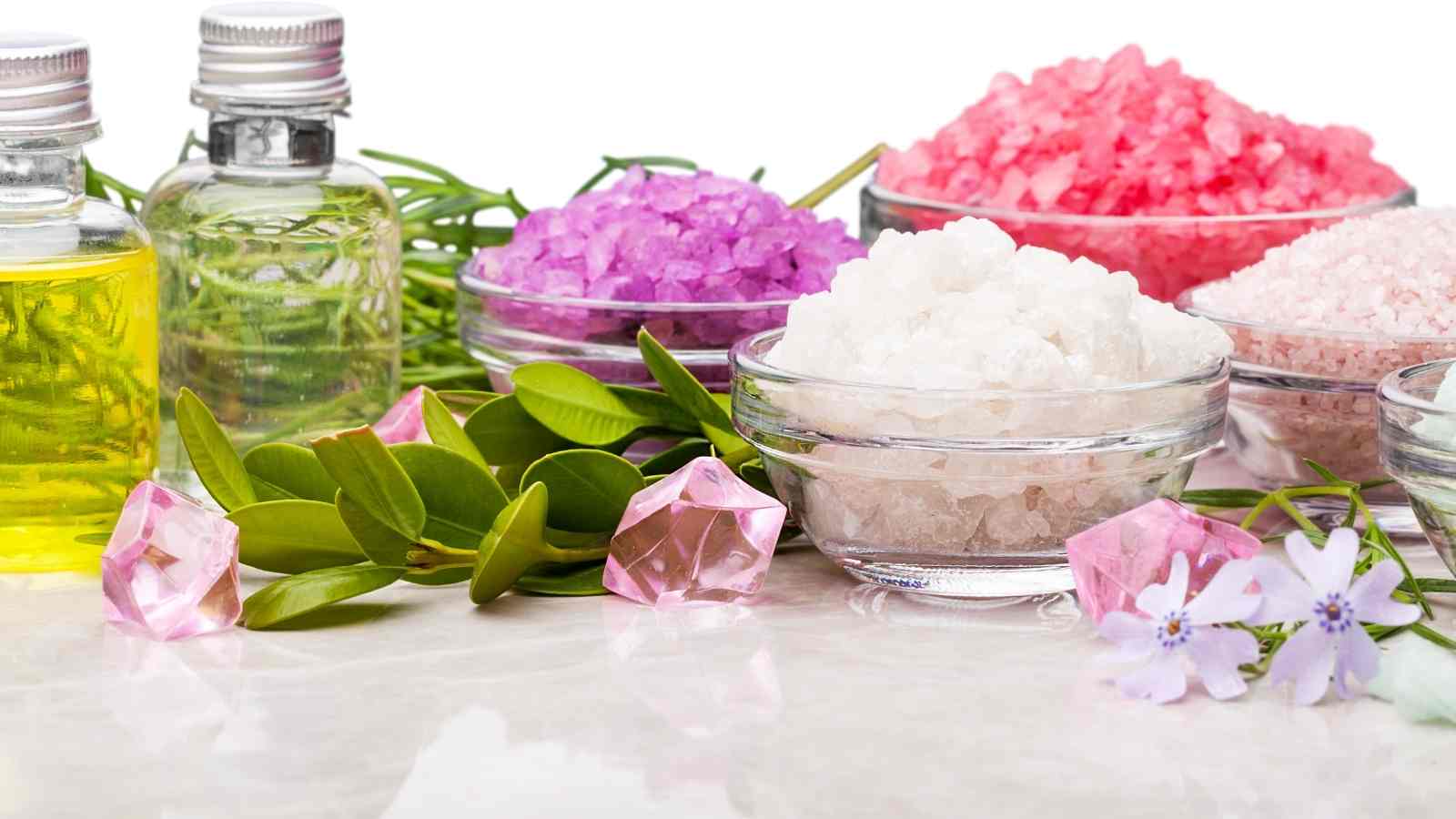The issue of whether or not certain components of our food are healthy causes a lot of consternation. Salt is in the category of things that most people don't understand!
When I initially started working at a dental office, I was curious about salt. The mouth may benefit from salt in a variety of ways. So, is salt good for you?
One of my favourite natural cures for gum disease, infections, mouth sores, and wounds is salt water rinses. Salt water rinses enhance tissue healing and inflammation relief, making them ideal for use after teeth cleaning.

Salt water rinses may also be used on a regular basis for maintenance. Salt water alkalizes the mouth, which is beneficial for maintaining a healthy pH balance and the general health of your oral microbiota. Even while there's no doubt that salt is beneficial to your oral hygiene, the rest of your body is a different storey.
Jump to:
- Is salt really that terrible for you?
- Salt insufficiency and salt restriction symptoms
- What is the purpose of salt in your body?
- Which salt is the healthiest?
- What is the finest salt to use?
- What constitutes a high-quality salt?
- What is the greatest kind of salt to use while cooking?
- 5 Reasons to Include Natural Salt in Your Diet
- 1. Assists you in staying hydrated
- 2. Helps to maintain healthy vascular health
- 3. Prevents muscular cramps by balancing electrolytes
- 4. Helps to maintain a healthy neurological system
- 5. Helps you sleep better
- Which Salt Is the Healthiest for You?
Is salt really that terrible for you?
For thousands of years, salt has been an essential component in traditional food preparation. Salt, on the other hand, has been painted as a villain in recent decades, since it has been linked to hypertension and heart disease.
The idea that a low-salt diet is healthier for humans dates back about 200 years and is based on poor data. Doctors recognised back then that our bodies need salt to keep blood pressure in check. They thought that eating too much salt caused high blood pressure and heart disease. As a consequence, massive (failed) government programmes to urge people to consume less salt were launched.
However, research is revealing that this basic premise isn't as simple as we originally imagined. There was no real relationship between salt consumption, high blood pressure, and the risk of heart disease, according to a meta-analysis of over 6,250 people. Our attitudes about salt, like many of our dietary guidelines, need to be reconsidered.
Salt insufficiency and salt restriction symptoms
It might be harmful to your body and health if you don't receive enough salt. The following are some indicators of salt insufficiency caused by salt restriction:
- Dehydration, particularly among athletes
- Muscle spasms
- Heart attack risk is higher.
- Headaches
- Weakness
- In the aged, cognitive deterioration is common.
- Irritability
What is the purpose of salt in your body?
We used to believe that our bodies had trouble managing salt levels. It was formerly thought that if you ate more salt, you'd grow thirsty and drink more water, causing your sodium levels in your body to dilute.
However, studies show that salt offers a variety of health advantages, including improving bodily water conservation and making you thirstier - the exact reverse of what you may expect. This implies that your body may prioritise its salt levels, which has been found to assist regulate metabolism.
Which salt is the healthiest?
Salt comes in four different varieties.
- Sea salt (table salt)
- Pink rock salt from the Himalayas
- Grey Celtic sea salt
It's critical to understand the difference between natural salt and table salt. The majority of table salt is sodium chloride, which has been highly processed. Natural salts are available in their whole, undamaged state. Sea salt and pink Himalayan rock salt are examples of natural salts.
Always use natural salt and avoid processed table salt wherever possible.

What is the finest salt to use?
- Regular Natural sea salts provide a modest quantity of naturally occurring iodine, but not nearly as much as iodized table salt. It is less refined than table salt and is available in fine and coarse versions. Most people choose sea salt because it has many more essential minerals and tastes nicer.
- Pink Himalayan rock salt is mineral-rich and contains all 84 critical trace elements your body needs. Pink salt may help with a variety of body processes, including minimising muscular cramps, improving blood sugar levels, and maintaining a healthy pH level in your cells.
- Celtic sea salt is unrefined, unfiltered, and comes from the pure coastal waters of Brittany's Guérande Region. This grey Sea Salt is obtained using ancient Celtic techniques by a paludier, a skilled salt harvester, and contains unprocessed and naturally formed minerals.
What constitutes a high-quality salt?
All of the other ingredients will be present in a high-quality salt. Himalayan salt and Celtic sea salt, for example, retain all of the additional components in salt that provide health advantages that table salt does not. Celtic sea salt has a greater mineral concentration than Himalayan sea salt, and it naturally includes tiny levels of iodine.
What is the greatest kind of salt to use while cooking?
Unless they include a high number of trace minerals, most salts will taste the same. Whether you notice a peculiar taste in your salt, consider switching brands to see if contamination is the cause.
5 Reasons to Include Natural Salt in Your Diet
With that in mind, consider the following five advantages of salt in your diet.
1. Assists you in staying hydrated
Your body needs a precise balance of sodium and potassium to keep hydrated. Because water follows salt in your body, if you have too much, your body will retain water. Because potassium helps to balance this, sea salt is preferable than sodium chloride or table salt. Both sodium and potassium are found in sea salt, such as Celtic or pink Himalayan, which helps to naturally balance your levels.
2. Helps to maintain healthy vascular health
When it comes to sea salt in particular, it has been shown to protect against heart disease. Again, it's critical to distinguish between sea salt and table salt, which is much less useful owing to its lack of mineral content. The results on how sea salt improves heart disease indicators clearly contradict years of dietary advice against salt - it's simply a matter of whatever kind of salt you use.
3. Prevents muscular cramps by balancing electrolytes
Sea salt is high in electrolytes, which have been demonstrated to help avoid muscular cramping during exercise. Sea salt is high in sodium, magnesium, potassium, and calcium, which are all essential nutrients for good health. Because your body cannot produce certain minerals, you must get them from your food. You may have irregular heartbeat, exhaustion, nausea, and even seizures if you don't get enough electrolytes.

4. Helps to maintain a healthy neurological system
Sodium controls water flow in the body, which is necessary for a healthy neurological system. Additionally, salt is required for electrical conduction to transmit and receive nervous system impulses in the water of your nervous system. Your brain, like other physiological processes, requires the proper ratio of sodium to other electrolytes, which is why sea salt is preferable to table salt.
5. Helps you sleep better
When reading about salt and sleep, it seems that there are conflicting accounts. However, if you pay carefully, you'll see that the warning against consuming salt before night refers to table salt and processed meals, both of which may lead to an imbalanced sodium level in the body. Because it contains so many beneficial electrolytes for hormone regulation, sea salt is considered to aid sleep.
When you replace table salt with natural salt, you may discover that you sleep better, are less thirsty, hungry, and eat more content. Because your body sweats it away, it's also crucial to make sure you receive enough salt whenever you exercise. They produce salt pills for anybody who engages in high-intensity sports or competitions to help with rehydration.
Which Salt Is the Healthiest for You?
Salt is one of those foods where you have to define the kind you're talking about in order to make the best choice. The difference between table salt and sea salt is significant. Make sure you use Celtic Sea Salt or Pink Himalayan rock salt instead of the less-than-healthy table salt.
Share this article with a friend who believes salt is harmful to their health. They'll be relieved to learn that the appropriate sort of salt may be used on their meals.




